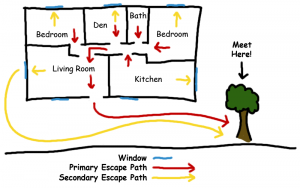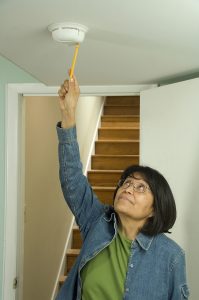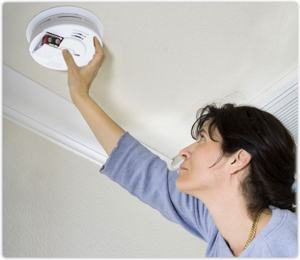Fire grows and moves faster than most people can imagine. When your smoke alarm sounds, your family could have less than 2 minutes to get out safely. That’s why our theme for Fire Prevention Month 2017 is “Every Second Counts! Test Smoke Alarms Every Month, and Plan 2 Ways Out.”
Whether you live in a house or an apartment, follow these 6 simple steps to plan and practice your escape:
 Draw a basic map of your home’s layout. Include all windows and doors.
Draw a basic map of your home’s layout. Include all windows and doors.Working smoke alarms more than double your family’s chance of surviving a fire at home. You should have a smoke alarm in every bedroom and sleeping area, in the common area outside the bedroom(s), and at least one smoke alarm on every level of the home.
Carbon monoxide (CO) is known as the “invisible killer” because you can’t smell it or see it. If you have any gas appliances, you need at least one CO alarm on each level of the home. You’re also advised to have CO alarms if you have any type of fireplace or an attached garage.
But simply having these alarms is not enough! Push the test button on each alarm every month, and change the batteries at least once a year — no matter what kind of alarm you have. Replace older alarms to ensure they’ll work when lives depend on them. For more information on smoke or carbon monoxide alarms, please visit our Frequently Asked Questions webpage.


